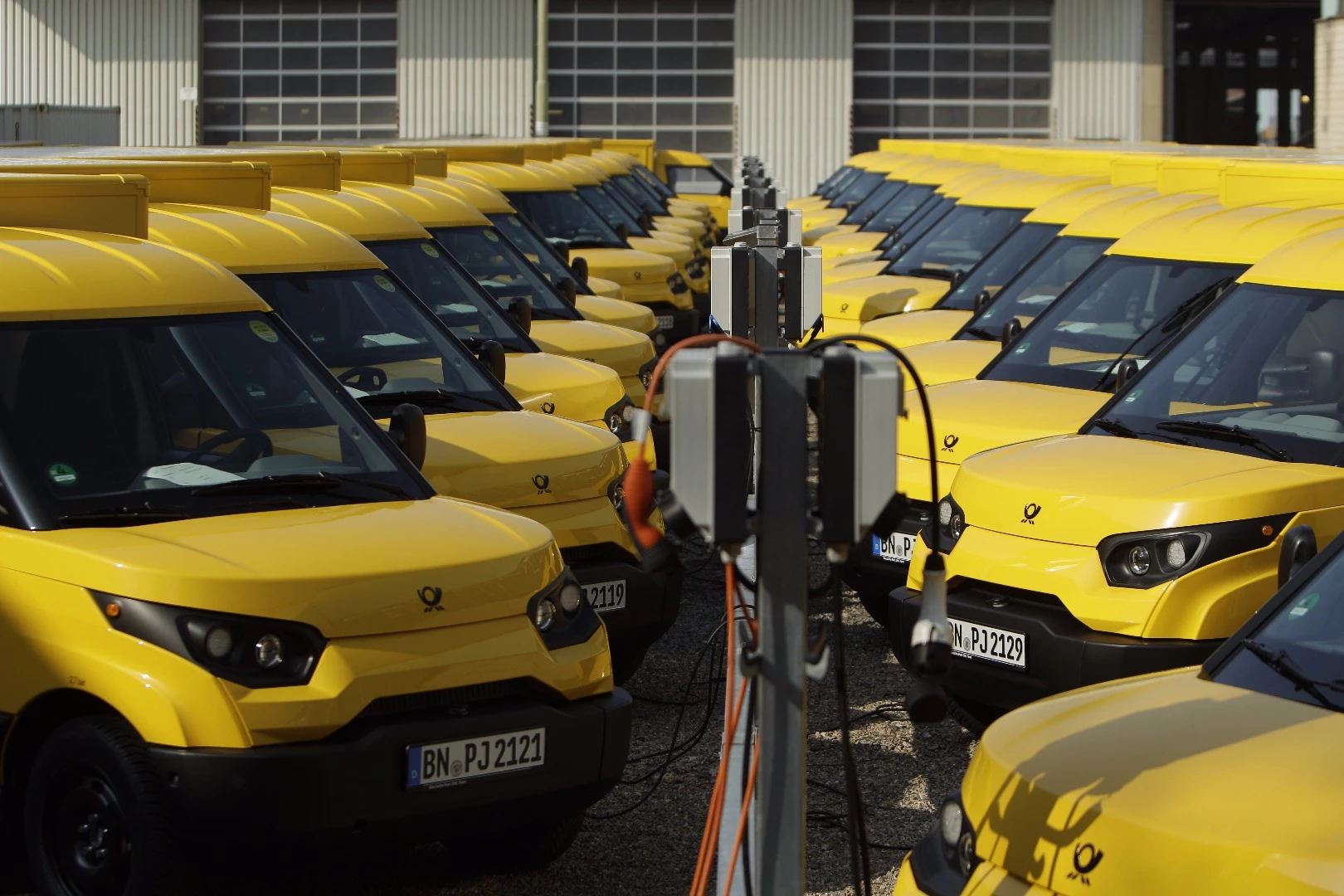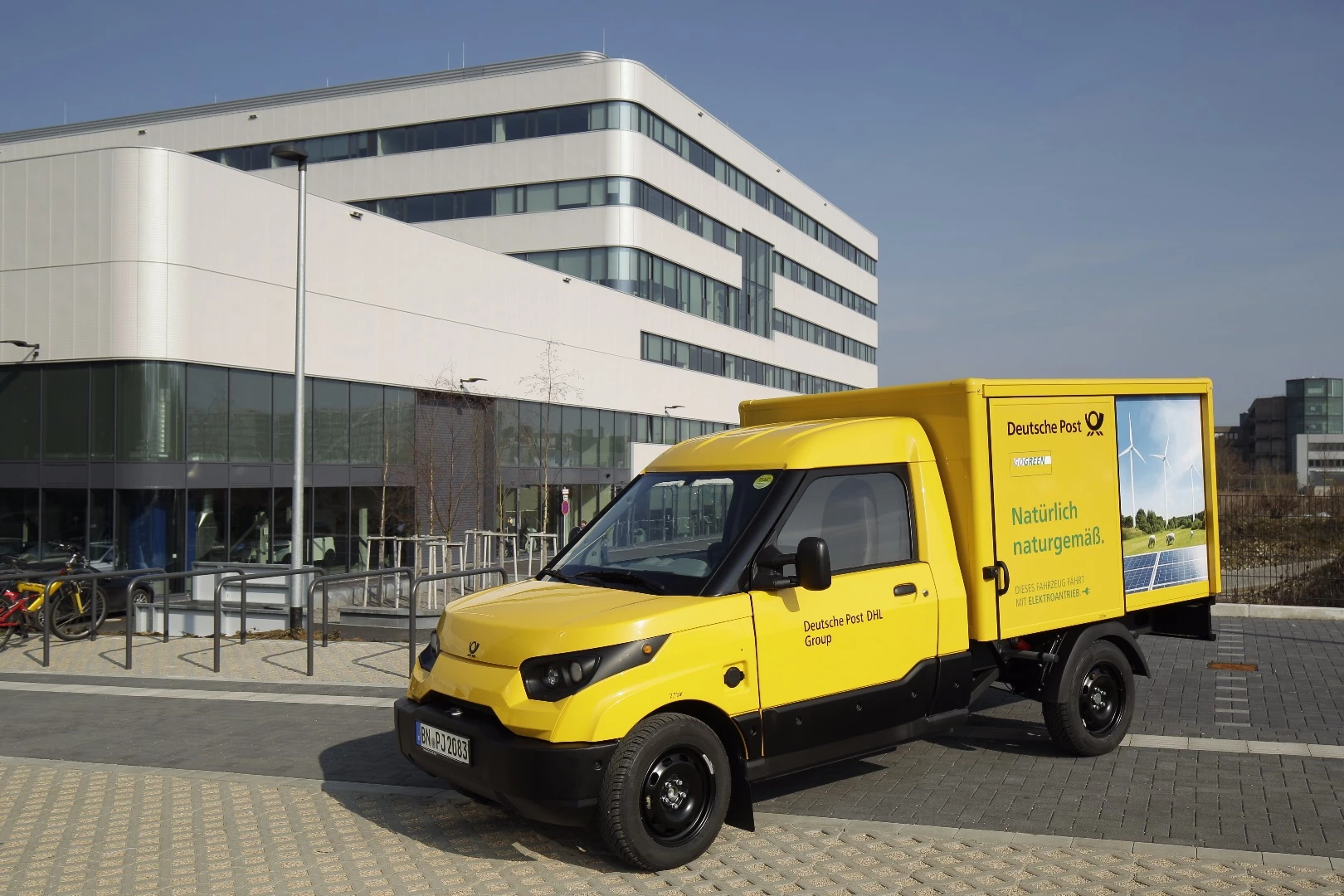In 1995, at a time when email was beginning to replace snail mail, Deutsche Bundespost was privatized, becoming Deutsche Post. Like most other privatized postal services in the world, the company faced an uncertain future, but the national institution is now the dominant freight and logistics company in the world, and is looking to cement its future by developing its own fleet of autonomous delivery vehicles.
After becoming privatized, Deutsche Post began acquiring shares in American International freight company DHL and completed its acquisition in 2002. Fifteen years later, the company we now know as Deutsche Post DHL (DPDHL) is the world's largest mail and logistics company, with half a million employees servicing over 220 countries.
The shrewd judgement of DPDHL continued in 2014 when it recognized that having a delivery fleet of thousands of vehicles worldwide gave it the perfect platform to build, test and evolve its own electric vehicles and it promptly purchased fledgling German EV company, StreetScooter GmbH.
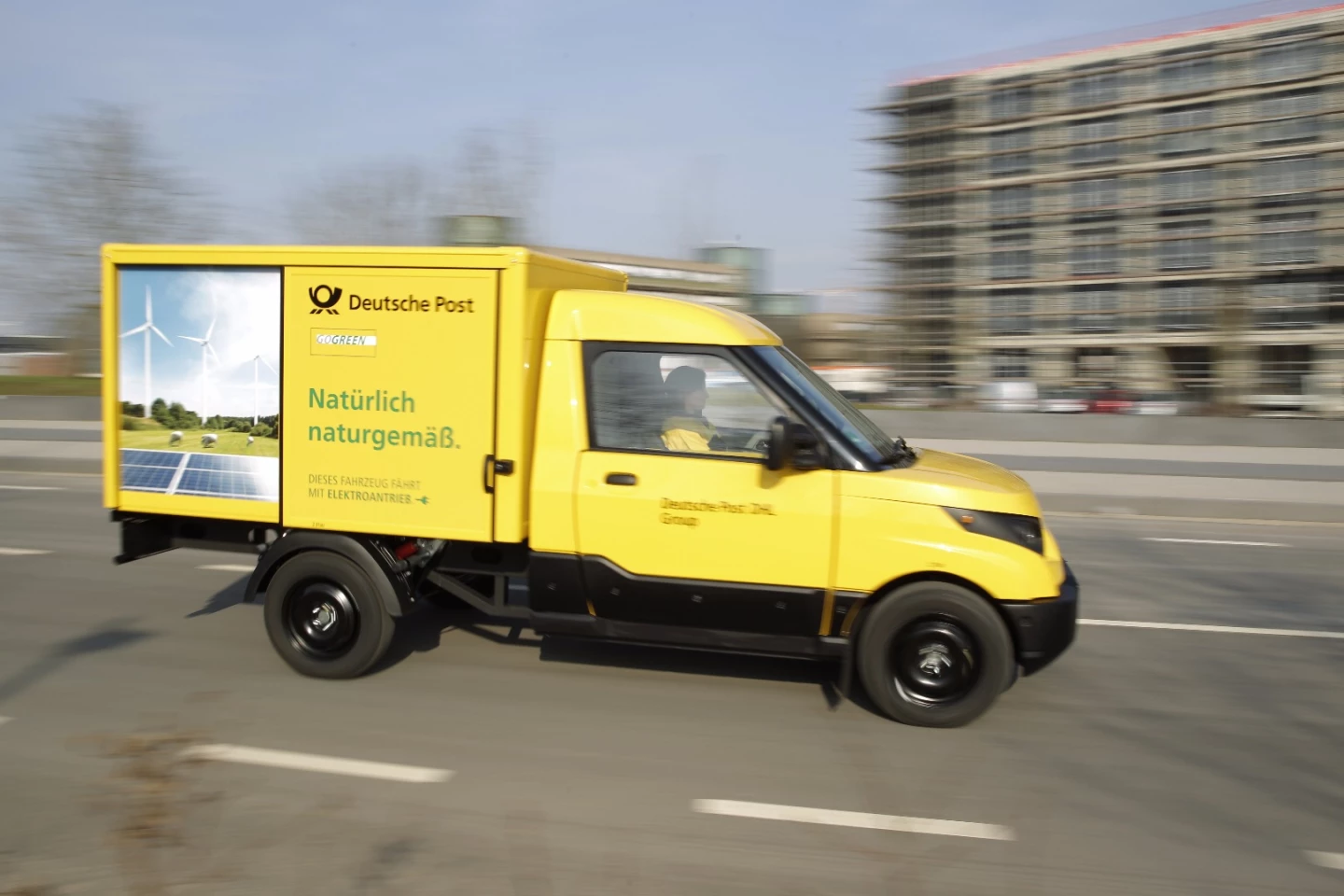
Since then, DPDHL has massively reduced its environmental footprint by replacing over 3,400 of its diesel delivery vans with electric vans like the one above, while also replacing mail delivery scooters across Germany with electric bicycles and trikes like the ones below. All of them were made by StreetScooter, which has yet to sell any vehicles to any other person or company.
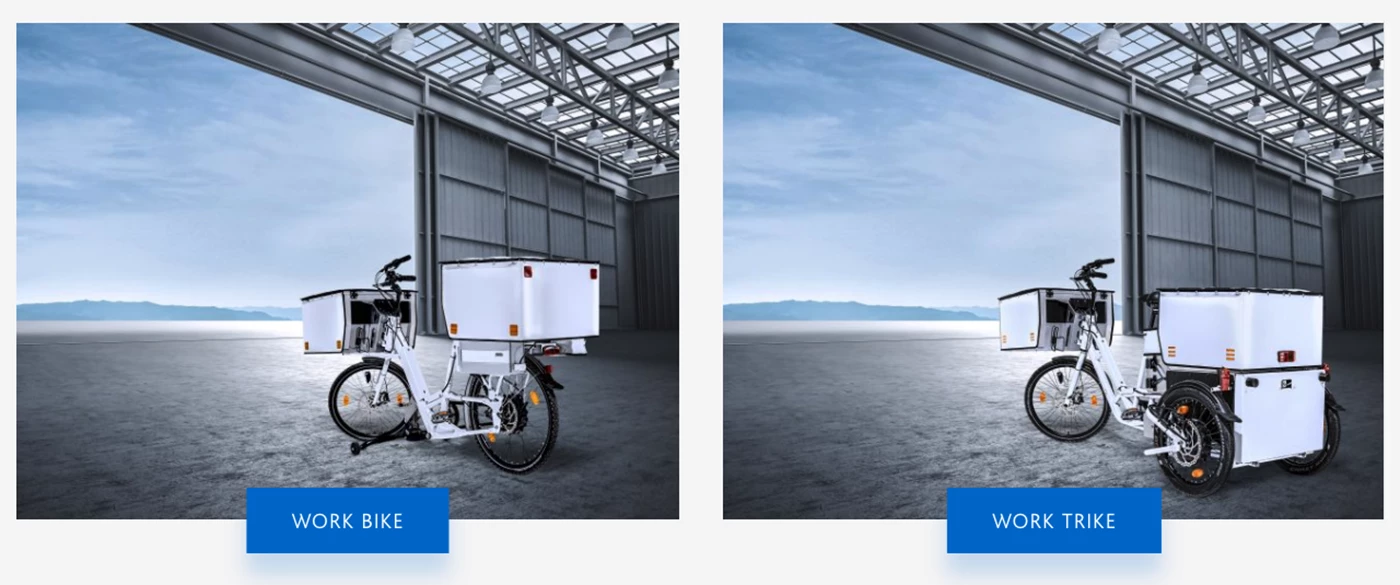
In addition to winning lots of brownie points for its corporate citizenry, the whole scheme was inspired business thinking too, as running a fleet comprising thousands of delivery vans and bikes absolutely guarantees the ongoing improvement of those vehicles. With self improving feedback loops in place for its vehicles, and their ongoing presence across Germany strengthening the brand attributes to the German public, StreetScooter is now readying its products for sale to customers beyond DPDHL.
But the most fascinating announcement to date came earlier this week when DPDHL and ZF, one of the world's largest automotive technology suppliers, signaled they were working together to deploy a test fleet of autonomous delivery trucks. The first prototype delivery vehicle was shown this week at the GPU Technology Conference (GTC) in Munich.
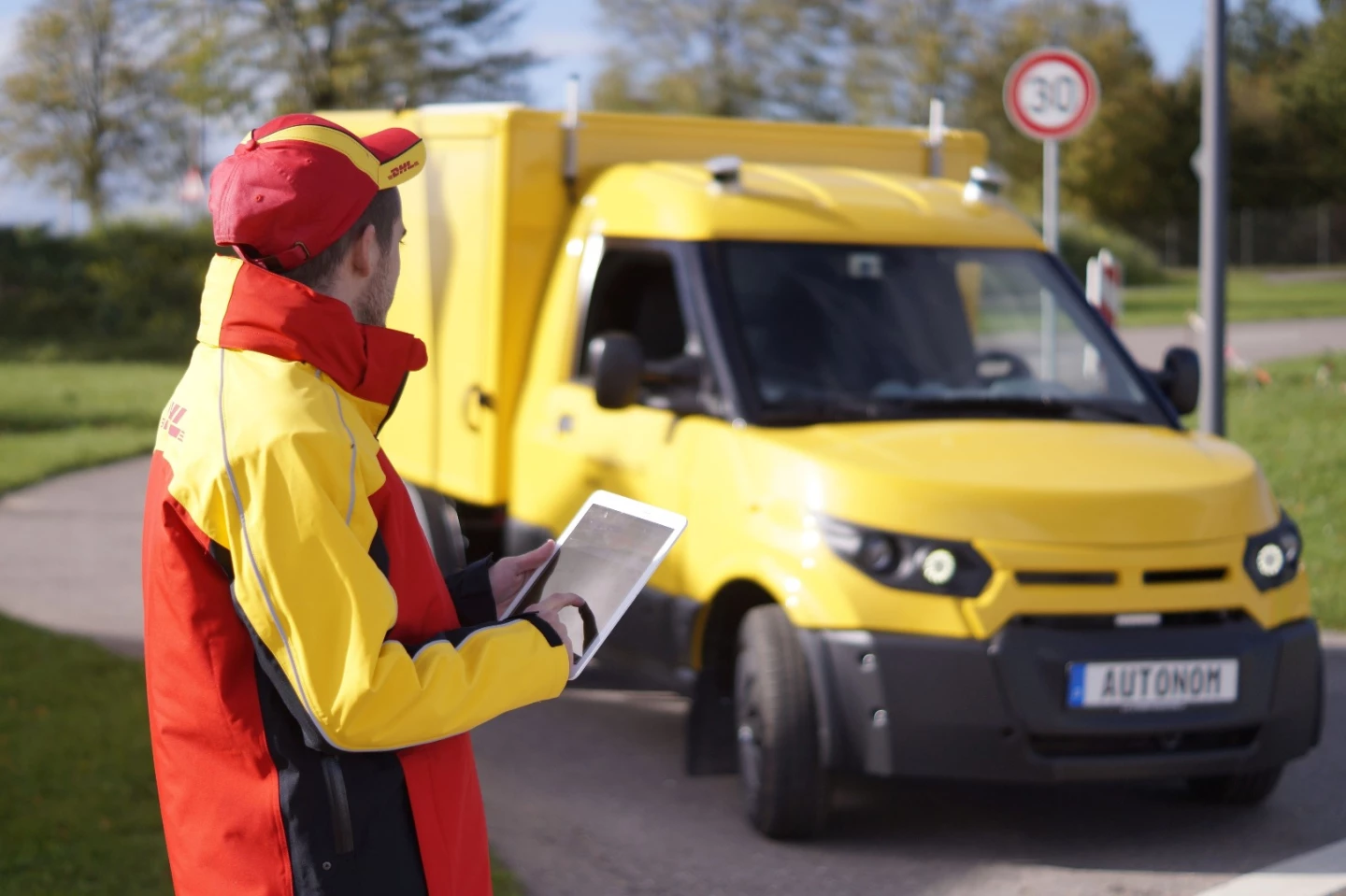
The "last mile" of courier delivery to the final destination is the costliest part of the delivery equation and DPDHL is keen to automate the process as much as possible by upgrading its fleet of up to 3,400 Streetscooter vehicles with autonomous last-mile capabilities to permanently reduce delivery costs. And by applying artificial intelligence to the equation, the aim is to continue the optimization process.
The autonomous StreetScooter prototypes are equipped with ZF's ProAI self-driving system, which is based on Nvidia's DRIVE PX technology and jointly developed by both companies. DRIVE PX is a family of AI car computers from Nvidia that can scale from a single processor configuration delivering AutoCruise capabilities, up to the newly announced Pegasus that boasts a network of processors and GPUs offering sensor fusion, surround vision, fully autonomous driving capabilities and most importantly, deep learning.
The prototype vehicle shown in Munich is equipped with six cameras, one radar and two lidar systems feeding data to the ZF ProAI control box, and the aim is that over time, the vehicles will develop the ability to recognize their immediate surroundings for deliveries, and plan and amend their own routes on the fly.
DPDHL has already equipped its data center with the Nvidia DGX-1 supercomputing chip to train its neural networks and plans call for these deep-learning algorithms to be transferred to the vehicle control boxes as the pilot progresses.
Perhaps the most remarkable aspect of the entire story is that company that just over 20 years ago might well have gone the way of the blacksmith, is already the dominant freight and logistics company in the world, and it will own the technologies that are increasing its competitive advantage.
Source: ZF

